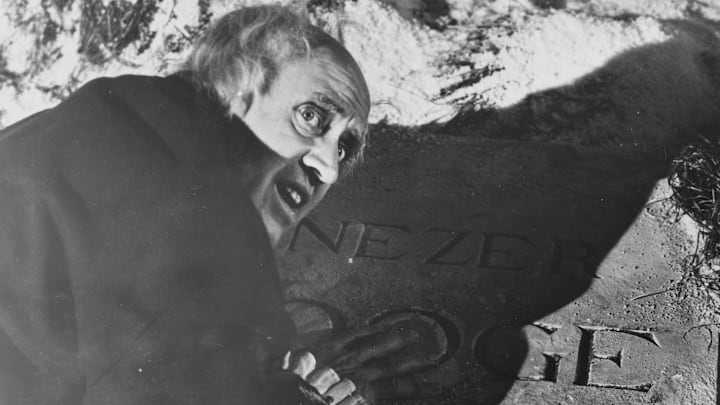Charles Dickens has been adapted more than almost any writer in history—and for good reason. His stories mix moral outrage, vivid characters, and just enough sentimentality to make audiences believe redemption might still be possible. From black and white masterpieces to vibrant reinventions, these seven adaptations prove that Dickens’s 19th-century vision still resonates deeply.
- The Personal History of David Copperfield (2019)
- Nicholas Nickleby (2002)
- Bleak House (2005)
- Oliver! (1968)
- A Christmas Carol (1951)
- Oliver Twist (1948)
- Great Expectations (1946)
The Personal History of David Copperfield (2019)
Armando Iannucci’s energetic retelling gives Dickens’s semi-autobiographical novel a modern pulse. Dev Patel’s quick-witted David leads a color-blind ensemble that brings humor and compassion to the classic tale of perseverance. It is a loving reintroduction of Dickens to a new generation that has been described as “a boisterous hymn to the creative impulse.”
Nicholas Nickleby (2002)
Director Douglas McGrath’s film trims the novel’s excesses without losing its warmth. Charlie Hunnam plays the young hero with sincerity, while Christopher Plummer relishes his role as the villainous Ralph Nickleby. With its bright palette and heartfelt tone, it stands out as one of the most accessible Dickens adaptations of the 2000s.
Bleak House (2005)
This Emmy-winning miniseries compressed Dickens’s sprawling novel into fifteen brisk episodes without losing its bite. Gillian Anderson’s icy Lady Dedlock and Anna Maxwell Martin’s compassionate Esther anchor a labyrinth of inheritance, secrecy, and corruption. It was hailed as proof that Dickens’s serialized storytelling is timeless.
Oliver! (1968)
The Technicolor musical version of Oliver Twist dominated the Oscars, winning Best Picture and Best Director for Carol Reed. Songs like “Consider Yourself” and “As Long As He Needs Me” turned Dickens’s street urchins into West End legends. Beneath the showmanship, though, Reed kept the story’s social bite intact—proof that Dickens’s moral outrage could still make audiences hum along.
You May Also Like:
Add Mental Floss as a preferred news source!
A Christmas Carol (1951)
Plenty of actors have played Ebenezer Scrooge in A Christmas Carol, but none quite like Alastair Sim. His version moves from bitterness to joy with rare emotional weight, and the film’s shadows give the ghosts real menace. Released under the title Scrooge in Britain, it’s the adaptation most critics cite as definitive—and the one that still airs every December for good reason.
Oliver Twist (1948)
Two years after Great Expectations, David Lean returned to Dickens with a darker, more claustrophobic take. Alec Guinness’s unsettling performance as Fagin—long controversial, even in its time, for its caricature—still looms large over the story of poverty and exploitation. Lean’s London feels both mythic and filthy, a place where innocence is constantly on trial and is still a masterpiece despite its clear insensitivities.
Great Expectations (1946)
David Lean’s Great Expectations remains the gold standard for Dickens on film. The story of orphaned Pip and his mysterious benefactor unfolds in haunting black and white chiaroscuro, turning foggy marshes and candlelit halls into gothic poetry. Critics have praised its precision and atmosphere for decades.
